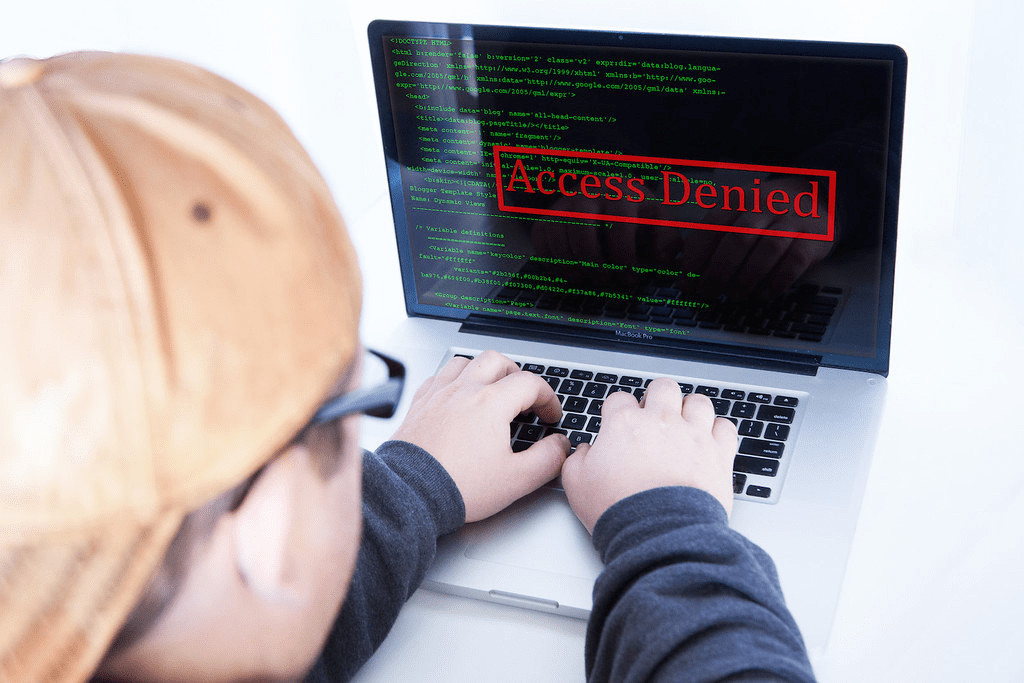With businesses becoming highly alert for malicious software attacks, excellent ethical hackers are in increasingly great demand.
They play a vital role in companies’ cybersecurity teams, protecting their data systems and networks. If you deem this job your career destination, it is imperative to plan out a good plan to reach it.
Fortunately, legal hacking is a skill you can master through practice and study.
So, let’s explore how to become an ethical hacker and what requirements you’ll need to meet through this guide!
What Is Ethical Hacking?
Not all data hackers are the same. Black-hat ones earn money by sneaking into governments and businesses to demand a ransom, steal data, or receive a payoff.
Meanwhile, white-hats attempt to ‘attack’ their customers to examine their security layers and get money for legal hacking efforts.
That’s ethical hacking: pen-testers or white-hats work for governments and companies to legally enter their systems to detect vulnerabilities or errors and improve defenses.
What Does An Ethical Hacker Do?

If you want to be an ethical hacker from scratch, it’s necessary to understand what responsibilities this position needs to fulfill.
A pen tester will usually be in charge of assessing the company’s security systems. A data security assessment is essentially a measurement based on an enterprise’s security posture risks.
Pen testers have to provide it periodically to the companies to test their security preparedness.
This exercise includes identifying vulnerabilities in the business processes and IT systems and recommending measures to reduce the risks of future invasions.
Security assessments also help determine how effectively security-related strategies are working.
Pen testers can rely on them to design better policies to conduct enhanced or additional security training and block social engineering.
This process is to promote network protection. White-hats identify weaknesses and consider the best countermeasures to mitigate an attack’s effects and prevent it.
In particular, their role in this process is to provide an intricate perspective of the potential malware attacks and resultant consequences to the business.
The business will change the situation by unfolding user demands, improving, removing, or adding new applications.
Why do we say an ethical hacker plays a critical role in this process? Because they ensure it remains theoretical instead of conducting a post-mortem examination after a real attack.
Vulnerability Threat Assessment
Vulnerability threat assessments act as tools for identifying, quantifying, and ranking the weaknesses related to a system and the threats possibly exploiting those weaknesses.
Since a VTA helps correlate and identify specific weaknesses and threats, it closely relates to security assessments. Yet, the VTA relies more on threats to do the work.
Many organizations require these assessments periodically, from national or large regional infrastructure entities to small businesses.
Such assessments usually require skilled, ethical hackers who can perform them.
One of the essential elements for handling a white hat’s assignments is the report writing skill. You’ll have to write concise and clear professional reports.
Correlating threats, identifying vulnerabilities, and gathering data can’t serve the right purpose if you can’t articulate the correct information to your risk management leader.
Reports compiled by the red teams are the fundamentals for important security resource expenditures. Reports submitted from the red team are often the impetus for significant security resource spending.
In the security consulting world, reports are the utmost and primary deliverable concern.
Entering the cybersecurity industry requires comprehensive digital awareness and extraordinary skills. Below are the steps to becoming an ethical hacker.
1. Assess Yourself

The first step to kickstarting a career is knowing whether it is the right path for you.
So, ask yourself these questions: Do you have a profile of a typical ethical hacker? Are you keen on the exciting, rapid pace of a hacking job?
Some people transfer to this job from prior IT positions, like system specialists, coding, and programming.
Indeed, you don’t need to have previous experience in data hacking or be an IT geek to start your career. But ensure you are an innovative thinker, a good problem solver, and highly analytical.
Those naturally investigative and curious are ideal for this job as they can dive into challenges with their creative thinking.
If it sounds like you, you’ve passed the initial stage of becoming a pentester.
2. Complete Your Education
Once you’ve determined you have the necessary personal qualities for the job, the second step is to research the various cybersecurity education options.
The beauty of transferring to pen testing is that there’s no need to spend four years studying for a college degree.
You can consider some relevant cybersecurity programs providing essential education to apply for an excellent job quickly.
Which course to go for depends on different variables. For example, how much money and time you’re willing to devote to your studying.
It also depends on where you reside and if you prefer classroom-based or online learning. Think about these before deciding.
3. Earn Certifications

In the last one to two decades, the growing pace of the data security industry has exceeded the workforce of educated, skilled cyber professionals.
That means the industry lacks pro-quality workers, leading those well-certified in high demand.
Various education certifications and standards are implemented to evaluate candidates as ethical hacking and trained cybersecurity professionals.
If you plan to transfer to a white-hat position, you need to get the proper training that yields the right credentials.
To get credentialed, you need to enroll in a practical ethical hacking course to equip yourself to master the standard exams, like the CEH and OSCP exams.
Ensure to opt for a hands-on training program led by an experienced expert in the industry that offers real-world laboratory simulations.
4. Gain On-The-Job Experience
After making yourself qualified, you will move on to the next phase of your career-building journey in a network support position.
In particular, you’ll handle entry-level tasks, like testing for vulnerabilities and installing, updating, and monitoring security programs.
Here, you can gain practical experience in the network protection field and aim to get a network engineering position.
After gaining practical experience in the network support area, you’ll be responsible for planning and designing networks, not just supporting others like before.
Your prime goal is to focus on the protection aspect. You’ll need to obtain a specialized certification to be ready for larger tasks, such as TICSA, CISSP, or Security+.
With accreditation and adequate on-the-job experience, you should be ample enough to seize a position in cybersecurity.
5. Enhance Your Skills

The work’s complex nature leads to plenty of skills you need to acquire to become a successful ethical hacker. Let’s check through those essential abilities to see if you can manage to master them.
Fundamental skills, including creating presentations, managing files, data processing, and understanding different operating systems, are the base for improving other relevant skills.
You can step up more pro skills with a robust foundation, like managing databases. commanding operating software lines, and adjusting networking parameters
Pen testers must exercise their cryptography abilities to transform normal texts into another form non-readable for black-hat hackers.
That’s how they ensure communication inside the business is secure.
Why do you need to grasp the understanding of various programming languages? Because you’ll use it to access any software.
The most broadly used programming languages among developers and pen testers are PHP, HTML, Java, Javascript, Ruby, Perl, C++, C, Python, and SQL.
There will be assignments requiring you to use your social engineering abilities to predict black hats’ possible actions. They’ll help you keep pace with the newest techniques malware hackers use.
It means understanding social engineering strategies and tactics can help predict how breaches can occur.
You’ll have to enhance your interpersonal abilities to determine what others think and how they behave.
Penetration testing abilities are crucial for mimicking data attacks and revealing vulnerabilities and loopholes of the protection layers.
You can use several penetration testing tactics, like external and internal testing, blind testing, and targeted testing, to protect servers.
White-hats have to understand the most common operating systems within the industry, particularly Linux.
Many web servers utilize Linux due to greater protection than other standard operating systems.
You’ll find examining security breaches a challenge if you don’t adequately understand the OS used.
Computer database management systems are software saving, retrieving, and updating information in computers.
Pen testers manage these databases, ascertaining that the cyber networks are secure, particularly if they store highly confidential information.
Expect sometimes to devote extra hours going through the databases to enhance their protective layers. Maintaining exceptional organizational skills will also help those professionals manage data.
Problem-Solving and Critical Thinking
Remember that all the above skills will not be at the highest level if you don’t know when and how to use them to address cyber issues.
Illegal hackers keep designing new tactics to seize unauthorized approaches to data. As a white-hat, you must always think radically and creatively to figure out new techniques to deal with any problems.
6. Promote Your Network

Since the cybersecurity field grows, networks of hacking professionals are increasing, too.
Networking will help strengthen connections between educators, employers, and colleagues. Workers can stay up-to-date with career opportunities and new developments close to them.
One way to promote your cyber network is by taking a pen-testing course in your area, such as an institute or college that offers face-to-face training.
That way, you can interact with your professionals, students, and teachers within the local cyber network in person.
It’s not simply a program. Your career path will be less pressured and stressed with the help of networking teams.
7. Seek The Right Job
After finishing certification exams, completing your courses, and building a strong network of open, like-minded hackers, it’s time you use your resources to seek the right job and company.
Indeed, with abundant job openings worldwide and in America, finding an ideal position falls within reach. And asking for employment search support and career guidance is barely a matter.
Many pen-testing boot camps provide graduate services, such as internship placement, building an outstanding profile, interview coaching, and career counseling.
What is the career outlook for ethical hackers?
Cyberwarfare is tremendously common among high-profile organizations susceptible to significant hacking issues.
Nowadays, global IT security calls for trillion-dollar investments. Can we find a better method to deal with the risks of black-hat attacking than taking advantage of skilled white hats? Probably not!
That’s why the craving for pentesters shows no signs of decreasing. As long as you acquire extraordinary skills and are rich in experience, your income will reach an amazingly high mark, particularly if you run your own penetration testing consultancy or company.
How much does an ethical hacker make?
Is the salary that high? Yes. Cybersecurity professionals like ethical hackers will expect to earn $100,840 a year on average.
Your experience degree may affect this salary figure. For instance, an entry-level network engineer will earn $93,250 a year on average.
Likewise, government institutes or commercial companies may offer higher salaries than smaller enterprises.
Conclusion
Think about entering the ethical hacking kingdom if you’re a technology fanatic. In this realm, talented, innovative, and dedicated individuals wear crowns!
Via this article, you can be clear about how to become an ethical hacker and what abilities you should strive to seize.
Now, keep a good attitude and determination!
